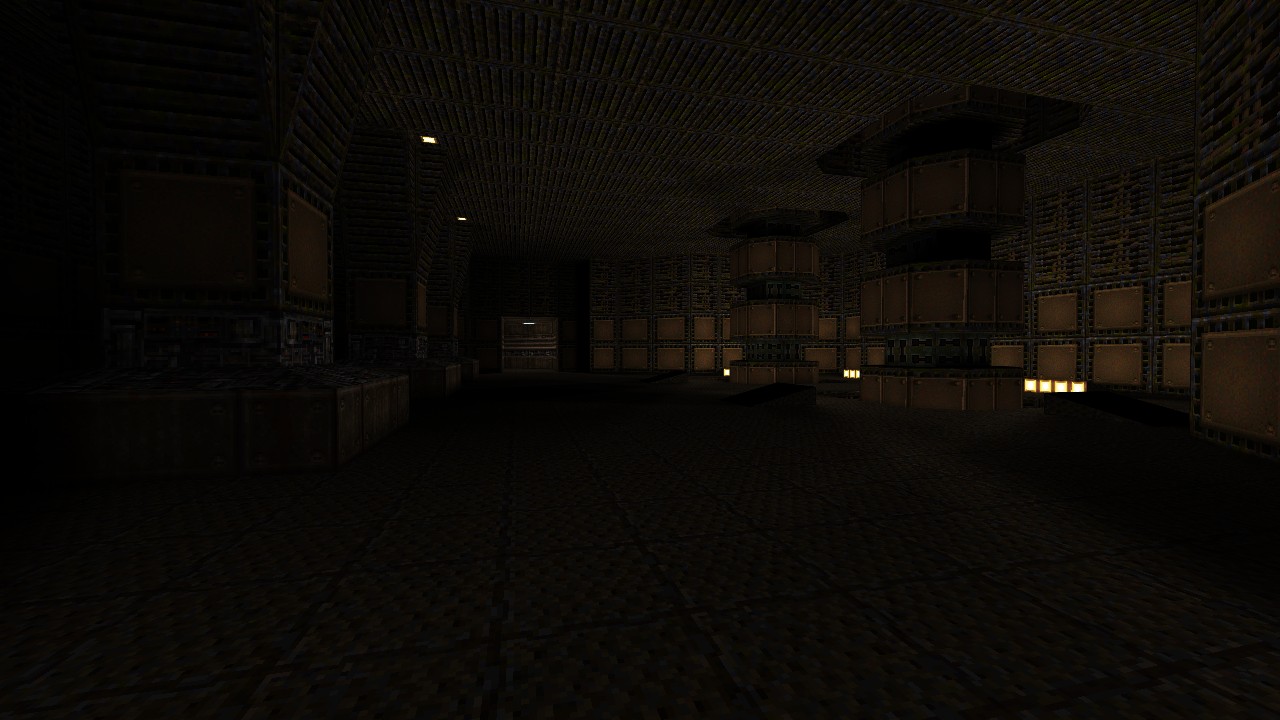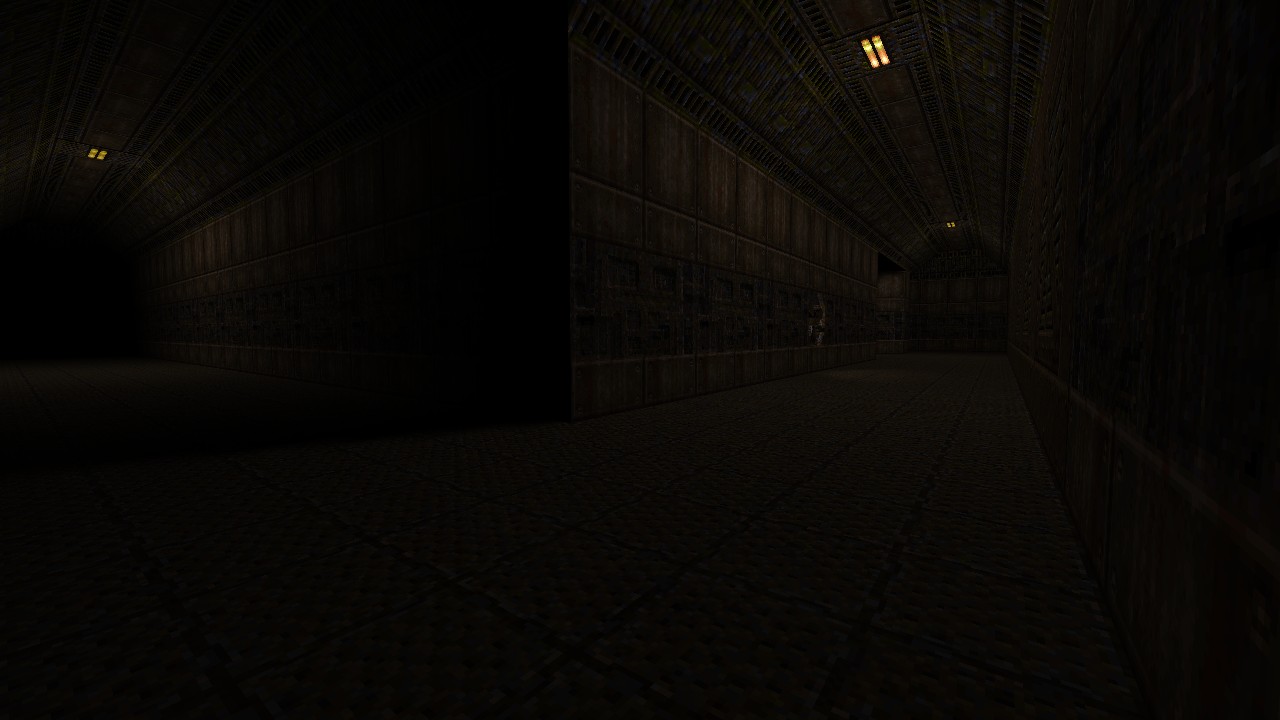Introduction
As the captain of a cargo vessel, you are on a three month journey in charge of transporting dangerous aliens contained below deck. Before reaching its destination, you are awoken from cryosleep by the ship’s computer taking place at different times and presented with a new problem that only you can solve.
Review
Your first thaw leads to discovering that the anti-gravity unit has been damaged and needs replacing, a simple job presenting an opportunity to wander around the vessel to get a feel of the place. Before proceeding onward there’s new keyboard assignments needed to support completion, like weapon reloading and applying first aid, which are detailed under a help screen by hitting F1. Of note here are three keyboard functions designated to moving the central lift between floors, which I’d have preferred a more elegant in-world solution so that navigation remained organic. You are the sole person roaming these cold metallic halls, there’s nothing else around for company besides ambient drones and an electrical hum. Those creatures housed on the cargo floor cannot be seen nor heard, yet while wandering down its twisting and turning corridors that merge into the shadows, I still kept looking over my shoulder a few times to be certain. Keeping a simple interior design along with having a high ceiling, evoked an effective loneliness making me feel small and vulnerable. Only an occasional rotating fan blade or a flicker of light suggests activity, further emphasising the lack of crew.
Getting to know this place inside out helped to gain a proper familiarity and built a layer of tension before the inevitable occurred, one that might have been more effective at its time of release when I hadn’t yet already played too much QUAKE. I appreciate the concept nonetheless, being stuck alone out in the middle of space inside a tin can where no one will come to save you. This well used vessel should function like a second home, yet with the threat of untold creatures just biding their time already feels like an invasion. Casaday really leans into that classic Alien vibe which had been noted as an inspirational source. Once the creatures begin their escapades they then proceed by exploiting the environment using blind corners, obscuring themselves within darkness and even testing your memory of the layout at a later stage. Action then becomes the main focus taking a bit away from the prior atmosphere, but continues to escalate the scenario during the last stretch when you’re pressed to abandon ship.
Conclusion
HELL IN A CAN is a horror experience that might seem dated, but I still enjoy coming back to replay it on occasions for its simple and charming concept. While the three missions are brief and focused, the main event could have been delayed a little longer by extending your menial tasks and experience your role maintaining the vessel to make the eventual containment breach hit harder. Aspects like these have however become more common tropes in horror games over the years since this level’s release date, classics such as System Shock 2 or Dead Space that focus on survival while being stranded in a spacecraft full of untold horrors. Various indie horror titles also like to place you into specific job roles while performing routine tasks as to create vulnerable positions for its horror scenarios to stand out and break up the familiarity. It’s curious just how close HELL IN A CAN came to blending these two types of horror together. Sometimes these aspects can drag out longer than necessary, so I don’t mind the snappier pacing if that lead to wanting more out of this project rather than wishing for its ending. Otherwise one aspect I didn’t like was having an infinite reload key always on hand, which will replenish a set amount of ammo for all your weapons, which then diminishes any threat enemies could have posed here. Tighter resources, using your tools wisely and being forced to acquire ammo during undesirable situations could have allowed even a single enemy to be a problem. For its time though, Casaday’s work here remains a curious diversion from the usual QUAKE formula and remains a good historical release to look back on.

